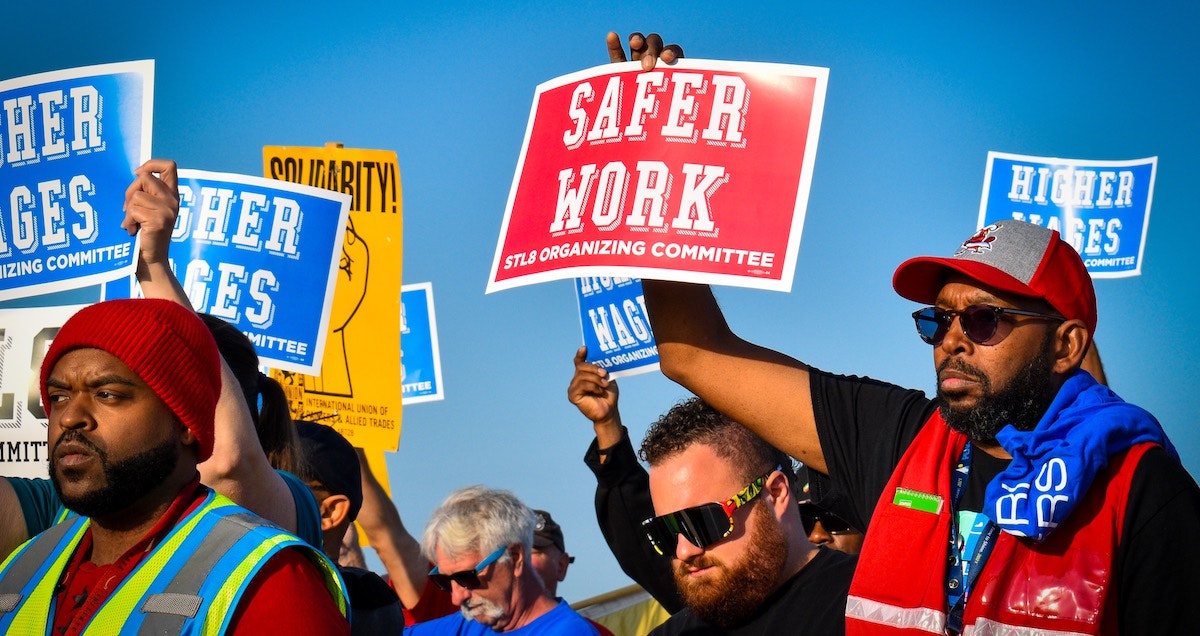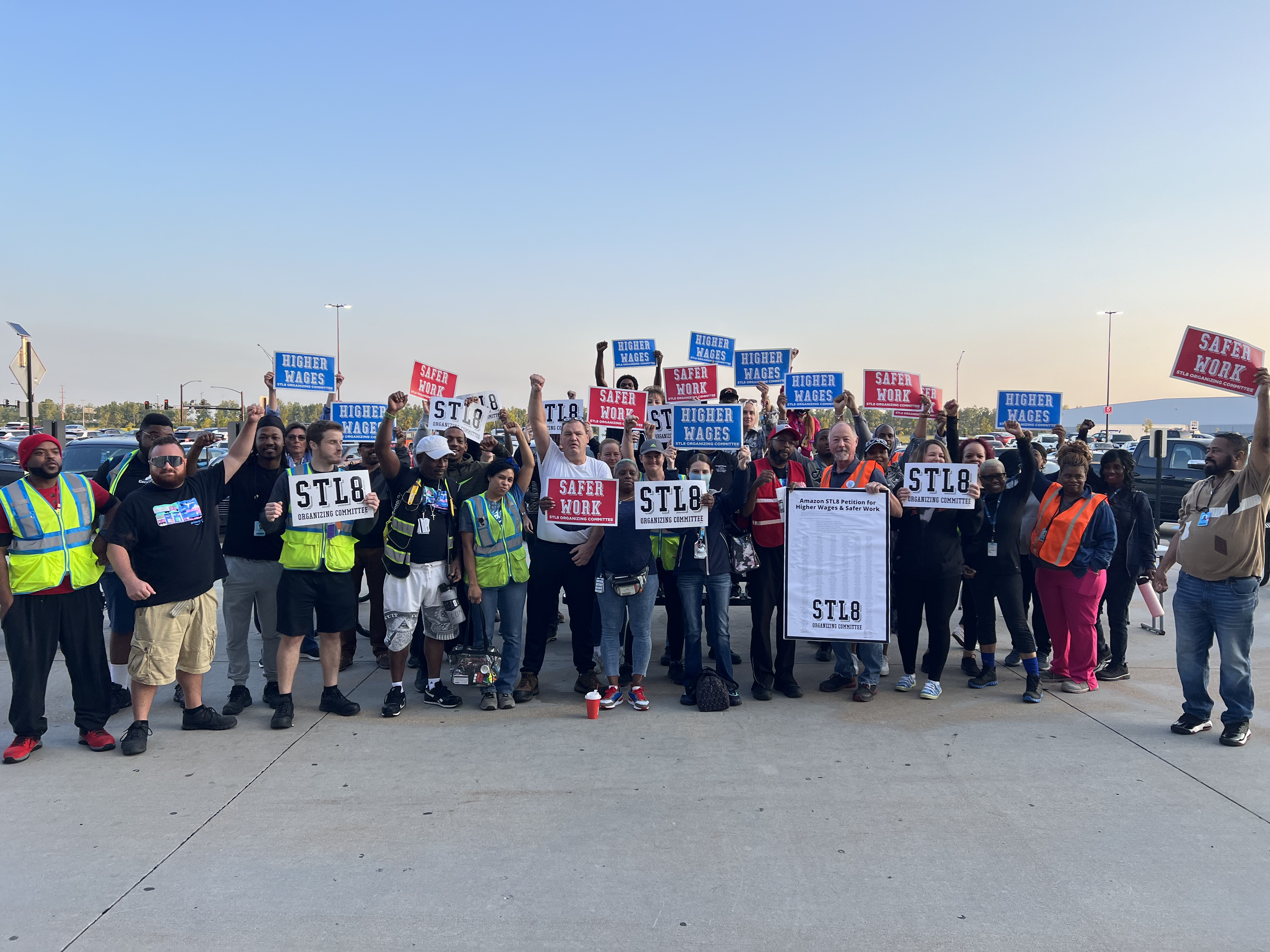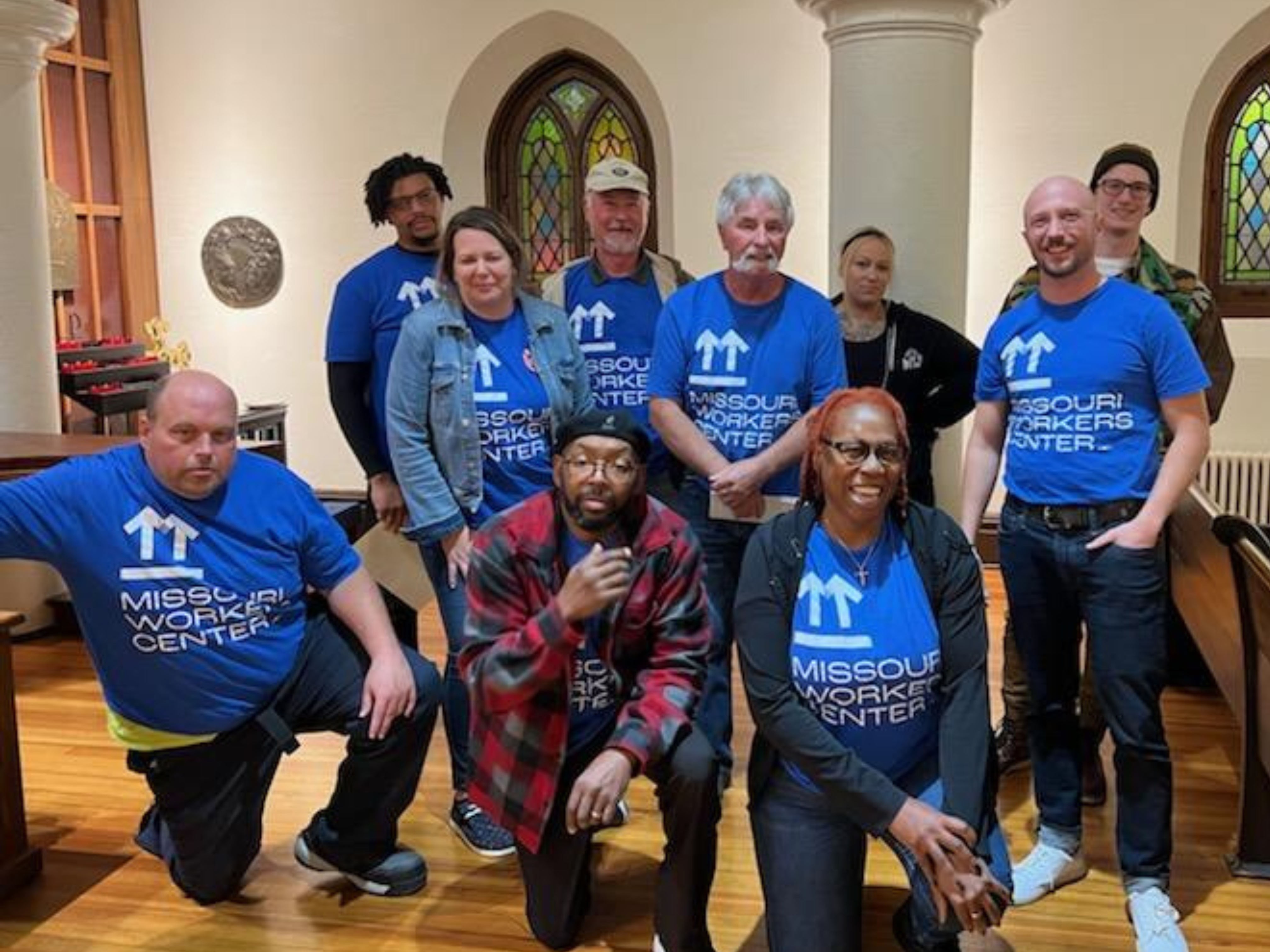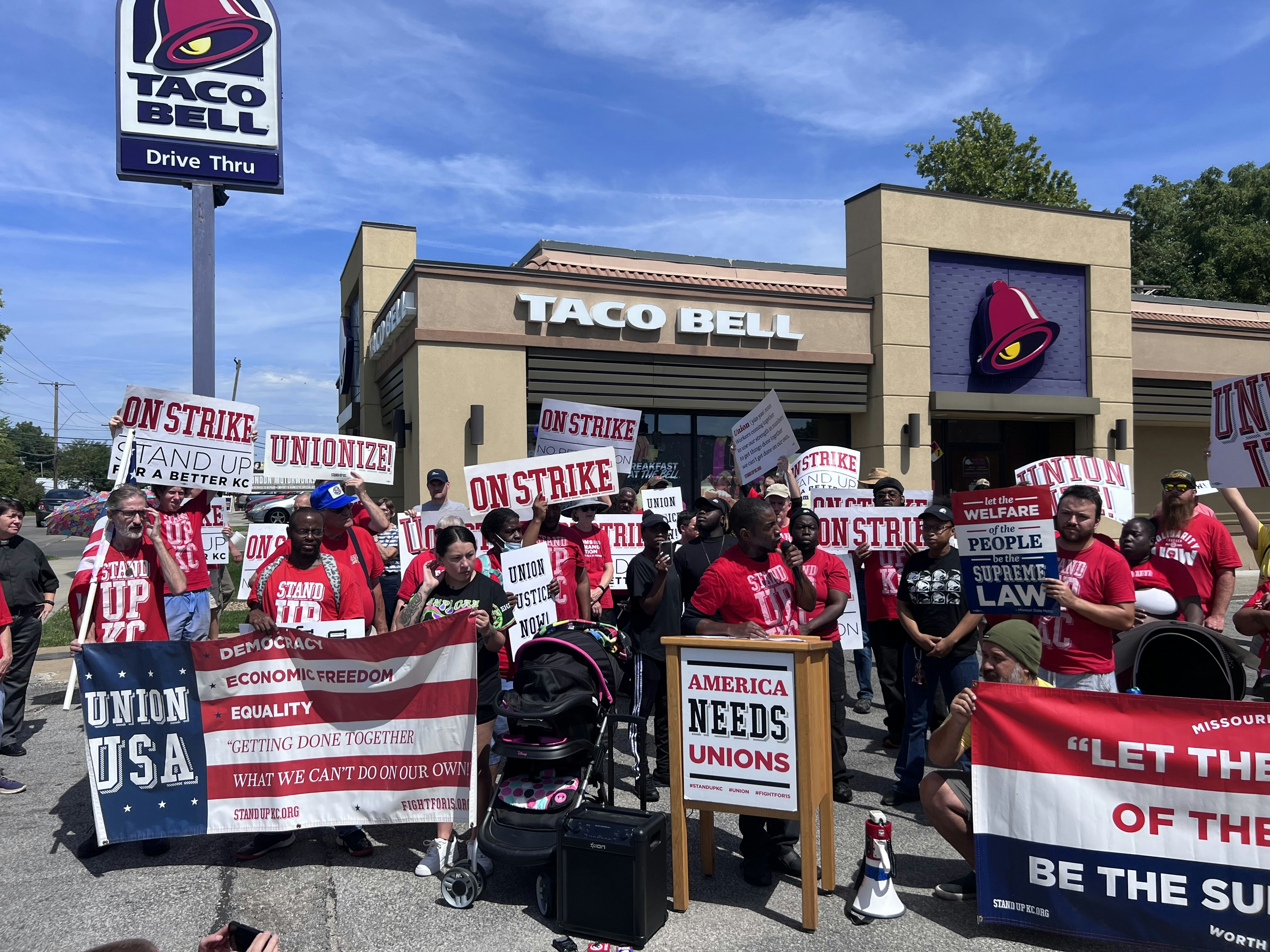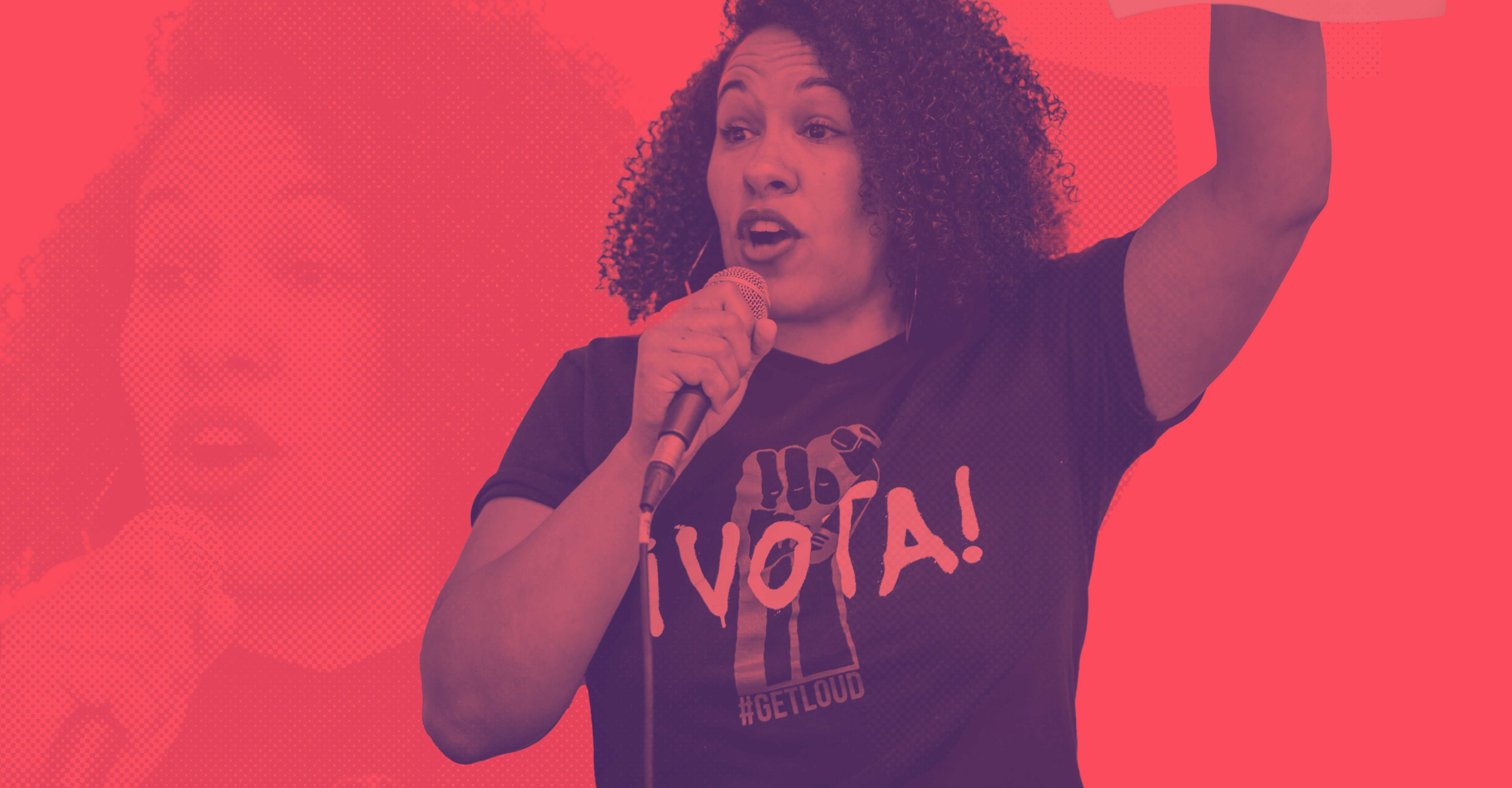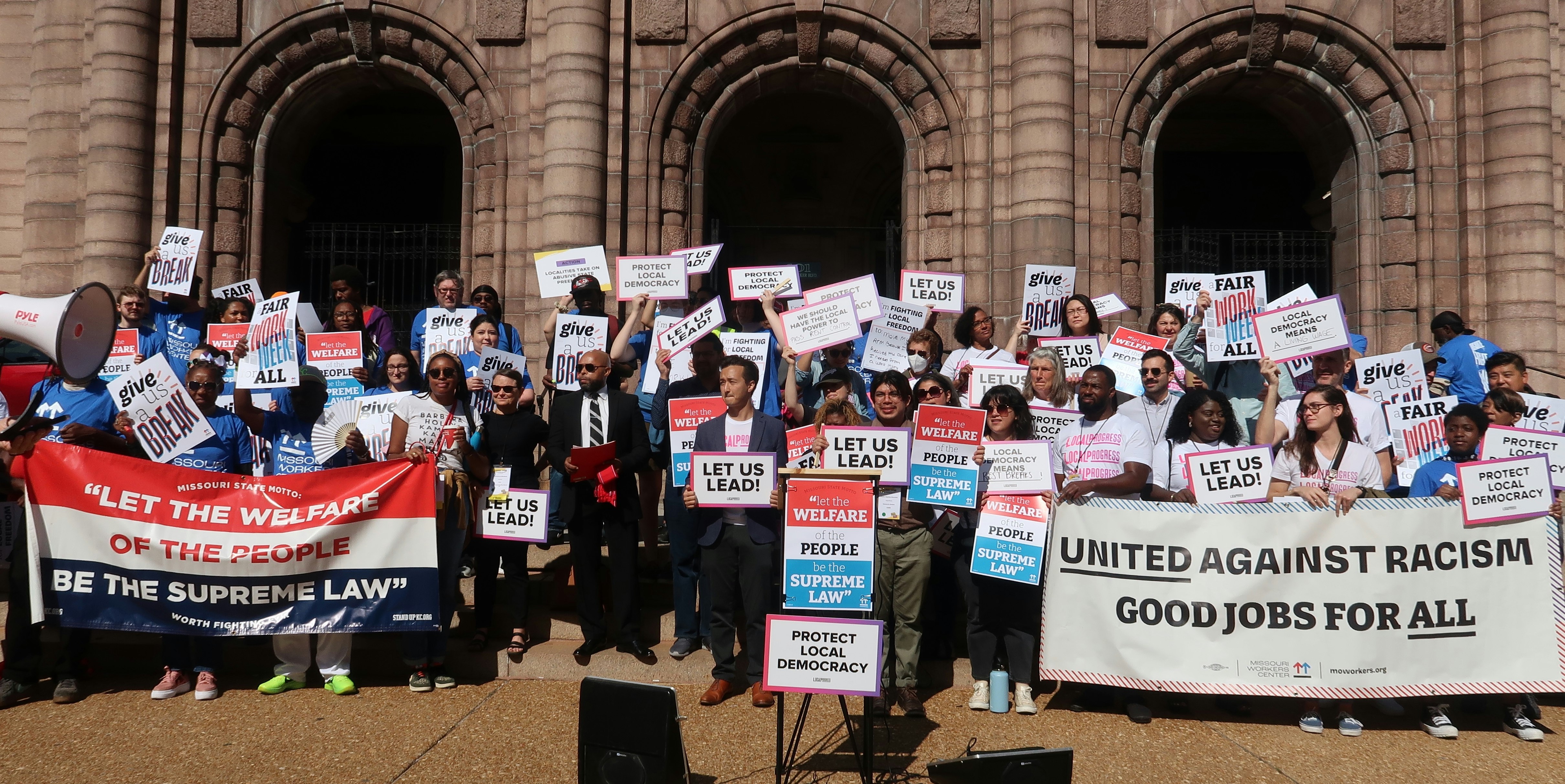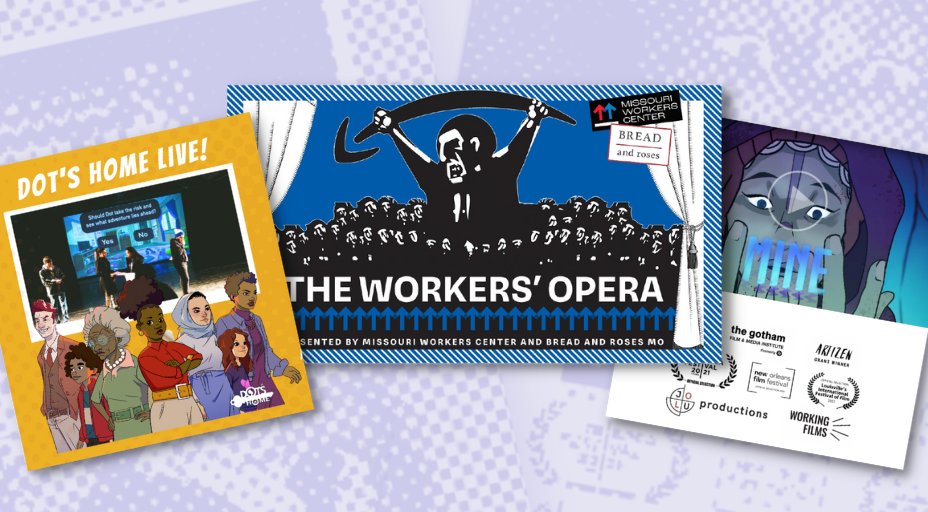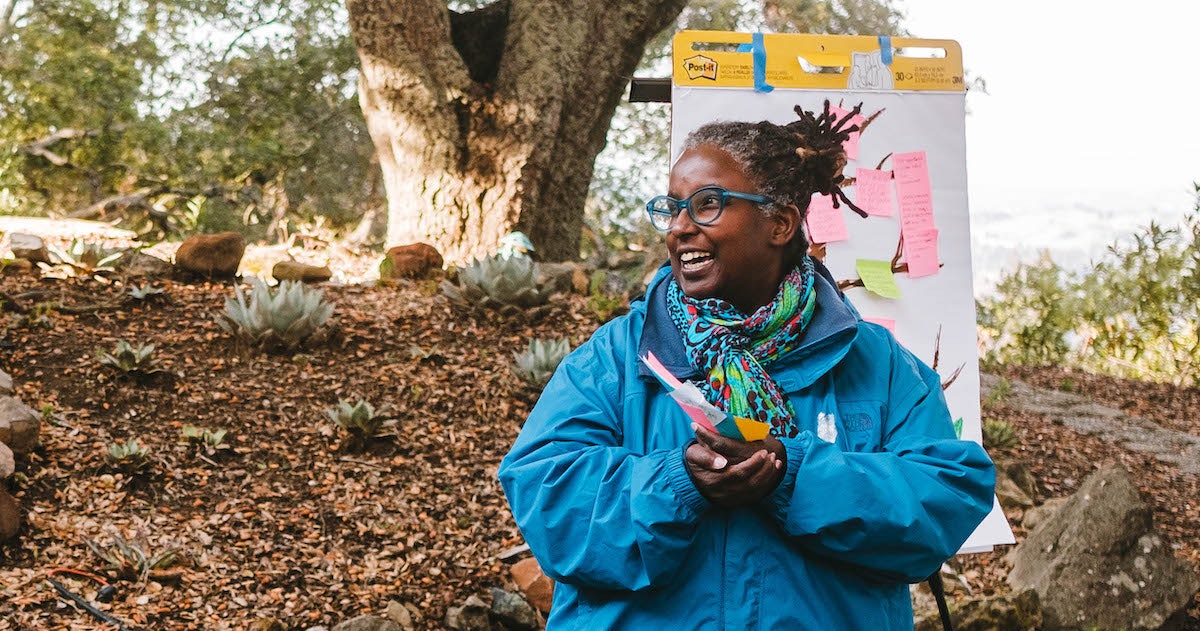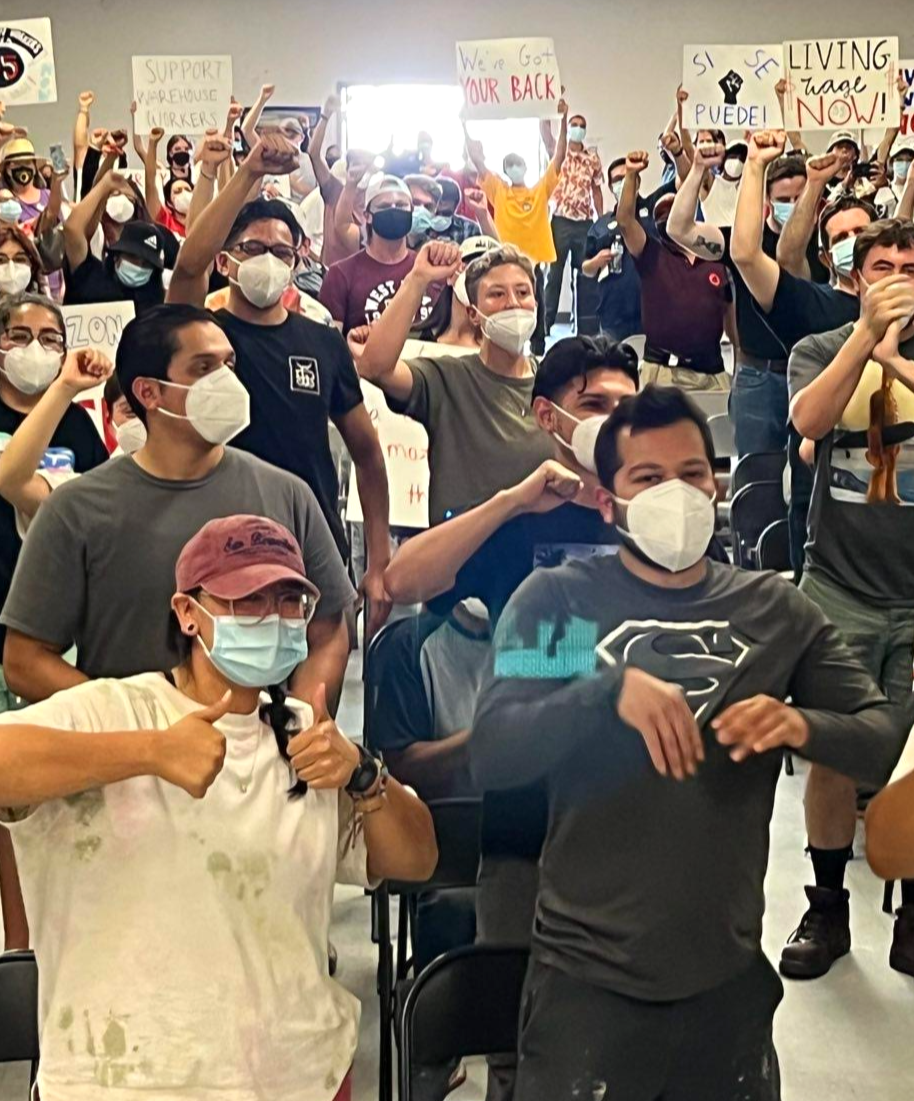Earlier this month we welcomed our newest affiliate to the network: Missouri Workers Center! Founded two years ago, they have been bringing together low-wage, Black, white, urban, and rural workers from across the state to build power, fight racism, and win economic justice for all. Our Base Building Manager, Rodney Brown, connected with Missouri Workers Center’s Executive Director, Jeremy Al-Haj, to talk about how they’re supporting workers, some of their recent wins, and what’s ahead for 2023 and beyond.
Rodney: Thanks so much for making time to talk. We’re so excited that Missouri Workers Center has joined the network! Can you tell us a bit about the organization? What’s your origin story?
Jeremy: Missouri Workers Center was founded in March 2021. Our initial mission was to find new strategies and paths to victory for Stand Up KC, which is the Kansas City arm of the national Fight for $15 movement. We wanted to rebuild that chapter and figure out different ways to bring corporations to the table, influence policy and development in the city, and win for workers.
In December 2021 we opened up an office in St. Louis. It was there, after a tornado hit Amazon's DLI4 facility in Edwardsville, Illinois, that we began supporting Amazon workers. Since then we have supported low-wage workers involved in the STL8 Organizing Committee, which is an organization of Black, Brown, and white Amazon workers in St. Peter's, Missouri who are fighting for better pay, safer working conditions, and the right to form a union without retaliation.
Rodney: Awesome. I remember reading about the STL8 Organizing Committee’s strike in your 2022 annual report. Can we go back in time a bit and hear about the relationship between Stand Up KC and Missouri Workers Center? How did that evolve and what are some of the wins you all have achieved together?
Jeremy: Stand Up KC has been around since 2013 and has produced some of the most important and dynamic leaders across the country for the Fight for $15. In Kansas City, low-wage workers fought for and raised the minimum wage not once, but twice. Unfortunately, the Missouri State Legislature passed a law that restricts local governments from raising a city’s minimum wage above the statewide minimum wage, so the state took those victories away. Stand Up KC has also won dozens of shop floor victories, from getting rid of racist management to winning safer working conditions. It has also been able to influence local elected officials and create a vibrant culture of organizing and mobilization in the city that didn't exist before.
In Kansas City and across the state, we know that the workplace is where a lot of different issues intersect. Workers' lives are much broader than whether or not they get a decent paycheck or if they are able to take a break on the job. For example, in 2021 we worked on a campaign alongside tenant rights organizations and legal service providers to win Right To Counsel in Kansas City. I've literally been sitting in workers' homes when they've been evicted. We’ll be sitting down talking about how to win better pay at their job, and suddenly the landlord will knock on the door. It became clear that workers need that kind of legal representation in order to remain in their homes and keep evictions off of their record. So, our workers voted to participate and they ended up being a key part of that fight—and they won!
Similarly, when we publicly launched in November of 2021, we hosted an event with Terrence Wise and Bridget Hughes, two longtime leaders with Stand Up KC, and Heather McGhee, author of The Sum of Us: What Racism Costs Everyone and How We Can Prosper Together. They had a conversation about race, class, and how racial division is really sapping the strength of low-wage workers across the country and our ability to win gains for working people as a whole. Terrence and Bridget now serve on our Board of Directors, so our relationship runs really deep.
Rodney: Thanks for that background. It’s clear that Stand Up KC and Missouri Workers Center are deeply intertwined, that you’re collaborating and engaging in shared fights. In that same vein, I’m curious what it means for Missouri Workers Center to join PowerSwitch Action?
Jeremy: First of all, we share a lot of values with PowerSwitch Action and I have a lot of respect for the leadership. Second, we have already been working closely on a number of different campaigns, and we feel like the network is a good home for us. We share a vision for a multiracial, feminist democracy where everyday working people have a voice in the decisions that impact their daily lives.
In order to achieve that vision, we’re building power with poor Black and Brown workers. We’re also figuring out ways to bring white people into coalition with those workers and get them to understand that there's an alternative to nationalist racist politics, and that if they join together with their Black and Brown siblings, they could have authentic decision-making power. So, for us, joining the network is a very values-aligned step in fighting and winning for all workers.
Rodney: The feeling is definitely mutual. We’re so excited to learn from you all, strategize together, and build the power of working people not only in Missouri, but across the country. My last question for now is: what’s on the horizon for this year?
Jeremy: In Kansas City, we're fighting to win a community benefits agreement (CBA) with the Kansas City Royals. If they build a new stadium in downtown Kansas City, the CBA will require them to host a “hiring hall” and hire at least 50% of the workforce from historically underprivileged districts. It will also include labor peace agreements for all the employers in the stadium and in the surrounding entertainment district, as well as preserve the collective bargaining agreements of workers at the stadium who currently have unions.
We're continuing to work with fast food workers at key franchises, like Taco Bell, to figure out new models for organizing on the shop floor and holding employers accountable in creating safe working conditions. In St. Louis, we're continuing to support Amazon workers and build power at STL8 by giving them the tools to not only win new forms of organization, but to also win better pay, safer working conditions, and accommodations for workplace injuries.
Statewide, we're working on a few different campaigns. We've been part of introducing an initiative petition for a worker's bill of rights that would raise the minimum wage, guarantee earned sick leave, and create break laws in Missouri. Right now, workers do not have any right to take breaks, so the bill of rights would create a new standard for them. We're also working on something called the Clean Slate Initiative, which would create automatic expungement for workers with criminal records in Missouri. Finally, we're working on a campaign to win back local control of things like wages and working conditions, so that our local elected leaders can pass laws that will improve the lives of people in their cities without being blocked by preemption laws at the state level.
The way we think about these fights is that they're actually all connected to creating a more democratic society where working people have the power to make more of the decisions that affect their daily lives.
That all starts in the workplace because that's where we have the least democracy, and it's also where people spend the most of their time.
Want to stay in the loop with Missouri Worker Center? Sign up for updates and follow them on Twitter, Instagram, and Facebook.
